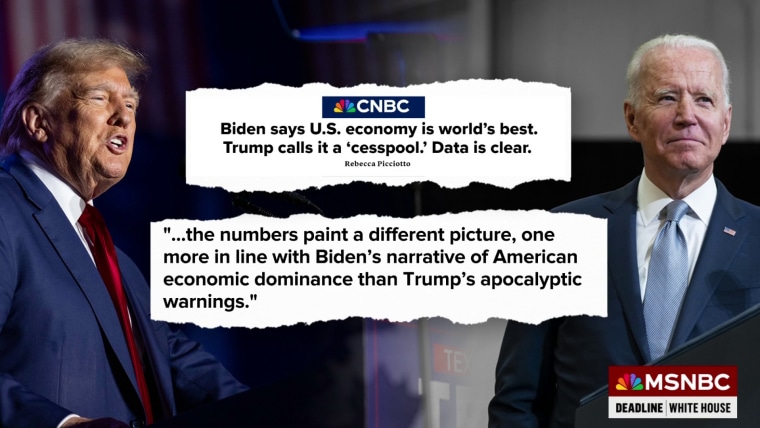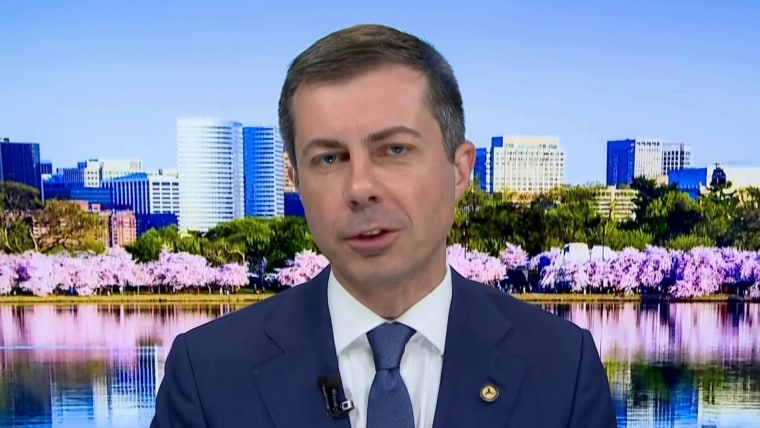Consumer prices are still higher than normal. Voters hate inflation and typically blame incumbents for it. And there's very little that a president can do to fix this.
The combination of these three factors may be the most significant policy problem facing President Joe Biden's re-election campaign.
But rather than cross his fingers and hope for the best, Biden has responded with a clever plan to try to offset the ongoing drag on the typical American family's household budget: cutting fees on everything from airplane tickets to mortgages.
Like a credit card rewards program, Biden is trying to entice Americans by putting a little money in their pockets each month.
Call it the cash-back presidency. Like a credit card rewards program, Biden is trying to entice Americans into signing up for another four-year contract by putting a little money in their pockets each month, even offering perks on airplane tickets and hotel stays.
The most recent example came this week when the Biden administration announced a slate of rules that would, among other things, streamline the process for travelers to quickly get cash refunds when their flights are canceled, delayed or otherwise significantly changed.
"Passengers deserve to get their money back when an airline owes them — without headaches or haggling," Transportation Secretary Pete Buttigieg said in a statement. And, as they say on TV, that's not all. The Biden program also includes efforts to require airlines and online travel agencies to disclose upfront the fees for checking bags or picking seats; make it easier to find out which airlines allow young children to sit next to their parents without additional fees; crack down on hidden “junk fees” when buying tickets for concerts, flights and hotels; limit overdraft fees from banks; cap credit card late fees at $8; force cable companies to list hidden fees; and scrap title insurance fees on federally backed mortgages.
For the second year in a row, Biden boasted about these efforts in his State of the Union address in March, alongside weightier subjects, such as the war in Ukraine, abortion rights and the racial wealth gap.

In his remarks, he cited an estimate from the White House Council of Economic Advisers that eliminating the various fees targeted by the Biden administration would save consumers $20 billion annually and facilitate comparison shopping to potentially save even more. His rhetorical framing showed another benefit to this approach.
"Folks at home, that’s why the banks are so mad," he said in an unscripted aside. "It’s $20 billion in profit."
Biden is hardly a pitchfork populist, but taking on these fees allows him to sound like one. After all, polls show airlines and banks are among the U.S. businesses with the worst reputations among consumers.
An old-school politician, Biden is clearly comfortable talking about these fees as a kitchen table issue.
An old-school politician, Biden is clearly comfortable talking about these fees as a kitchen table issue, as shown by another memorable improvisation in his State of the Union address, when he lamented that Snickers bars aren't as big as they used to be. A minor point? Yes, but a relatable one.
The size of candy bars may sound a little small for the campaign to be the leader of the free world, but it's hardly unprecedented, going at least back to a famous campaign ad for Herbert Hoover calling for "a chicken in every pot." It's especially the case for incumbents running for re-election, as Bill Clinton demonstrated with talk about school uniforms, midnight basketball programs and V-chips to allow parents to block specific TV content. In his first term, George W. Bush literally sent taxpayers a rebate check in the mail.
When it comes down to it, voters are often unsure how to judge the big things. They don't have deeply formed opinions on the ins and outs of the Inflation Reduction Act and the infrastructure bill. As a result, they use shortcuts to determine which candidate is looking out for their interests.
Biden can — and should — make the case to voters for his broader approach to economic policy. But it can't hurt if he also shows what he means by giving them a little cash back. Instead of worrying about inflation as he seeks re-election, he can ask voters: What's in your wallet?

